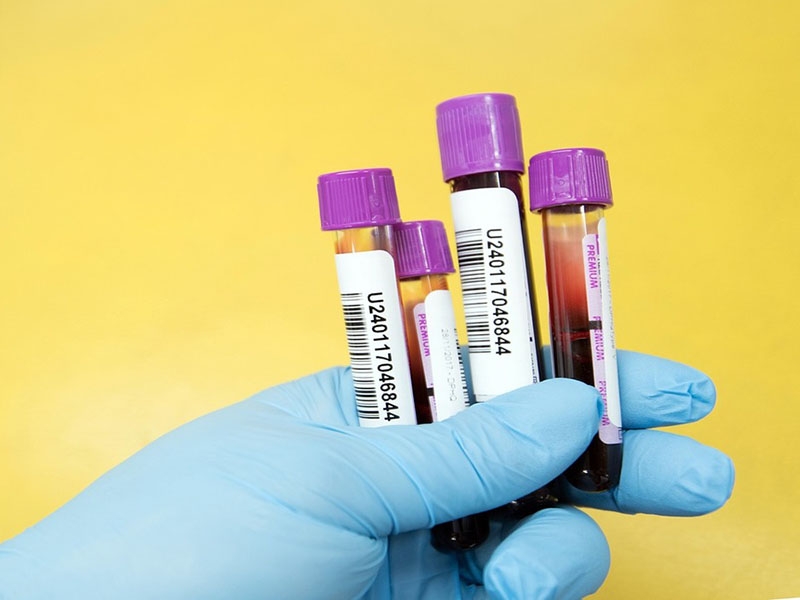
Blood test
Watch our video about Blood test
What is a Blood Test?
A Blood Test is a diagnostic procedure in which a small sample of blood is analysed to assess various aspects of health. It provides valuable insights into the functioning of organs, the presence of diseases, and overall wellness. Blood tests are versatile and widely used in modern medicine for both diagnostic and monitoring purposes.
At Clinic Consultation, we offer a broad range of blood tests using advanced laboratory technology. These tests are performed by skilled professionals to ensure accuracy and reliability, helping patients take proactive steps towards better health.
What is a Blood Test Used For?
Blood tests serve multiple purposes, including diagnosing diseases, monitoring chronic conditions, and evaluating the effectiveness of treatments. They can measure components such as blood cells, electrolytes, enzymes, and hormones, providing a comprehensive picture of a person’s health.
In addition to diagnosing specific conditions, blood tests are used as preventive tools to identify potential health risks early. Regular testing can help detect conditions like diabetes, high cholesterol, or thyroid disorders before symptoms become apparent.
How Does a Blood Test Work?
During a blood test, a healthcare professional collects a small sample of blood, usually from a vein in the arm, using a sterile needle. The sample is then sent to a laboratory for analysis, where advanced equipment evaluates various components of the blood.
The procedure is quick, typically taking only a few minutes, and is minimally invasive. Results are often available within hours to a few days. At Clinic Consultation, we prioritise patient comfort during the process and ensure clear communication of test results.
What Are the Types of Blood Tests?
Blood tests are tailored to specific diagnostic needs and can be categorised into several types:
Complete blood count (CBC)
Evaluates red blood cells, white blood cells, and platelets to detect conditions like anaemia, infections, or clotting disorders.Blood Chemistry Tests
Measures electrolytes, glucose, and kidney or liver function markers to assess organ health.Lipid Panel
Analyses cholesterol and triglyceride levels to evaluate cardiovascular risk.Hormone Tests
Assesses hormone levels, such as thyroid hormones or reproductive hormones, to diagnose endocrine disorders.Coagulation Panel
Evaluates blood clotting ability, crucial for diagnosing bleeding disorders or monitoring anticoagulant therapy.Infectious Disease Tests
Detects markers of infections, such as HIV, hepatitis, or bacterial infections.Nutritional Tests
Measures levels of vitamins, minerals, and other nutrients to identify deficiencies or imbalances.
Each type of blood test provides unique insights into health, and at Clinic Consultation, we ensure that the appropriate tests are selected based on patient needs.
What Conditions Can Be Detected Through a Blood Test?
Blood tests are essential for diagnosing a wide range of conditions, including:
Anaemia
Identifies low red blood cell or haemoglobin levels.Diabetes
Measures glucose levels to detect prediabetes or diabetes.High Cholesterol
Evaluates lipid levels, which indicate cardiovascular disease risk.Thyroid Disorders
Detects hypo- or hyperthyroidism through thyroid hormone levels.Infections
Identifies bacterial, viral, or fungal infections through markers like white blood cell count.Kidney or Liver Disease
Assesses markers like creatinine or liver enzymes to evaluate organ function.Nutritional Deficiencies
Measures levels of vitamins like B12 or minerals like iron.
When is a Blood Test Indicated?
Blood tests are recommended in various situations, including:
Routine Health Check-ups
To monitor overall health and detect potential issues early.Unexplained Symptoms
Such as fatigue, weight loss, or fever, which may require further investigation.Chronic Disease Monitoring
To track conditions like diabetes, hypertension, or thyroid disorders.Pre-Surgical Evaluation
Ensures the patient is fit for surgery by assessing organ function and blood health.Medication Monitoring
Evaluates the effectiveness or side effects of treatments like anticoagulants or chemotherapy.Fertility or Hormonal Issues
Diagnoses hormonal imbalances affecting fertility or other health concerns.Nutritional Concerns
Identifies deficiencies that may affect overall wellness.
Pre- and Post-Blood Test Care
Before the Procedure:
- Follow fasting instructions if required, especially for tests like glucose or cholesterol.
- Stay hydrated to make blood collection easier.
- Inform your doctor about any medications or supplements you are taking, as these can affect results.
After the Procedure:
- Apply gentle pressure to the needle site to minimise bruising.
- Drink plenty of fluids if you felt light-headed during the test.
- Discuss the results with your doctor to understand their implications and next steps.
What Are the Contraindications for Blood Tests?
Blood tests are generally safe, but some considerations include:
- Bleeding Disorders: Patients with conditions like haemophilia may require special precautions.
- Severe Needle Phobia: Can cause anxiety or discomfort during the procedure.
At Clinic Consultation, we address these concerns with care and provide alternative approaches if necessary.
What Are the Alternatives to Blood Tests?
For patients unable to undergo blood tests, alternative diagnostic options include:
- Urine Tests: Useful for assessing kidney function or detecting infections.
- Imaging Tests: Such as Ultrasound or CT scans, to evaluate organs without invasive procedures.
- Saliva or Hair Tests: May be used for specific hormonal or nutritional assessments.
Our team at Clinic Consultation works closely with patients to identify the most suitable diagnostic methods.
Book Your Blood Test at Clinic Consultation
Blood tests are a cornerstone of preventive healthcare and diagnosis. At Clinic Consultation, we combine advanced laboratory technology with personalised care to provide accurate and timely results. Schedule your blood test online today and take a proactive step towards better health.
Click here to schedule an appointment online